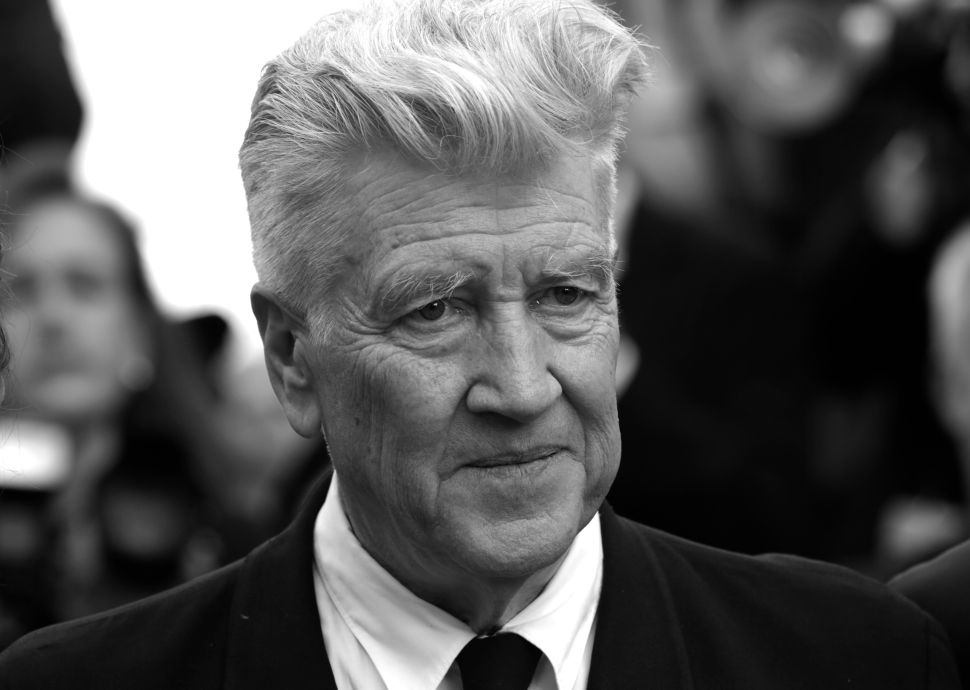The late, great David Lynch is being remembered as one of the most influential American auteurs, and for good reason. With tributes coming in from across the industry, his impact on film has clearly been vast and inarguable. And though Lynch embodied American experimental film since his debut film, Eraserhead, in 1977 and garnered awards for movies like Mulholland Drive and Wild at Heart (as well as an Honorary Academy Award), perhaps his most lasting contribution has been in the television sphere through Twin Peaks.
Premiering on ABC in 1990, Twin Peaks ushered in a new kind of television. Weird, dark, and decidedly cinematic for network TV, the melodramatic mystery was a surprise hit as millions tuned in to find out “Who killed Laura Palmer?”—but that’s not what kept them coming back week after week. No, the real draw of Twin Peaks remains the titular town that the series takes place in and its strange inhabitants, a world painstakingly crafted by Lynch and co-creator Mark Frost. The show would be nothing without all of its peculiar little details, from the prophetic Log Lady to Special Agent Dale Cooper (Kyle Maclachlan) and his unorthodox crime solving methods.
A mystery stood at the center of the series, yes, but Lynch understood that Twin Peaks couldn’t just be a case that needed to be closed. He wanted to keep things going for as long as possible, exploring the lore of the town and its people and the otherworldly forces at play (which he did in the film Twin Peaks: Fire Walk With Me and the even stranger series Twin Peaks: The Return, now his final major directorial endeavor). His idea was to have the resolution of Laura Palmer’s murder serve as the conclusion of the series, but only after the creative well of Twin Peaks and its oddities ran dry. The powers that be on network TV, however, disagreed with that approach, infamously pressuring Lynch and Frost to wrap up the mystery lest viewers (and advertisers) get bored. That executive decision ultimately backfired for the series, which suffered diminishing ratings and stretched-out storylines.
What those at ABC fundamentally misunderstood was that Lynch was doing something different and making a new kind of television. He imbued his special, idiosyncratic brand of surrealism into things, adding the other reality of the Black Lodge and ultimately making the culprit a spiritual entity of evil. He involved his collaborator Angelo Badalamenti to score the show with an eerie, synth-infused soundtrack. He recruited directors from other areas of the industry, like editor Duwayne Dunham and cinematographer Caleb Deschanel, creating a more cinematic approach to television production as a result. Though the idea of prestige television was still a few years away, crystalized by the likes of The Sopranos and The West Wing, such layered, ambitious dramas would not have been able to secure the same cultural foothold without the phenomenon of Twin Peaks.
Along with that new emphasis on televisual excellence, Lynch and Frost deftly balanced weirdness and mainstream genres. Twin Peaks is a murder mystery, a police procedural, a coming-of-age drama, a surreal horror story; for every bizarre, cryptic dream that Cooper has, there’s juicy soap opera drama between lumber mill owner Josie (Joan Chen) and her sister-in-law Catherine (Piper Laurie) or burgeoning illicit romances between beloved town figures Norma (Peggy Lipton) and Ed (Everett Mcgill). Twin Peaks set a gold standard for the serial subplot, fleshing out the stories that make a show compelling rather than just sticking to a central conspiracy.
It’s a tough balancing act that showrunners have sought to replicate in the decades since the show ended, some more successful than others. Major names in TV like Damon Lindelof (Lost, Watchmen), Noah Hawley (Fargo, Legion), and Donald Glover (Atlanta, Swarm) have cited Lynch’s work on Twin Peaks as a source of inspiration, which tracks for creators who are so keen to mix and match genres. But they’re not the only ones clearly influenced by the series.
These days, it seems like almost every show on TV and streaming runs on a mystery, but none have been able to build a story around it like Lynch. Recent series like No Good Deed and The Madness add soapy elements, from real estate melodrama to estranged children, but they feel tacked on to shows that prioritize a solved puzzle above all else. Showrunners want a “Who killed Laura Palmer?” level of audience fervor, but they fail to realize that solving a mystery isn’t the be-all, end-all of good television. Lynch knew that, and he sought to make something sprawling instead. There are questions to be asked about Twin Peaks three decades later, a bevy of still-compelling mysteries and ambiguities to ponder, but that’s not what won viewers over—that would be the indelible world that Lynch helped create, coffee, owls, backwards dialogue and all. He will be missed, but thankfully he’s been immortalized on television and film.

